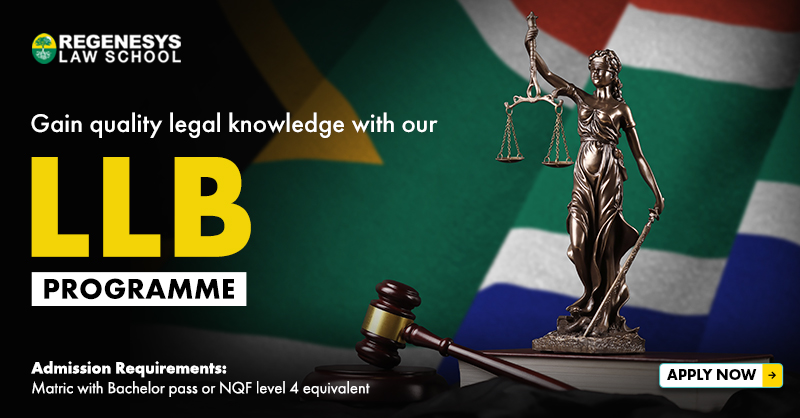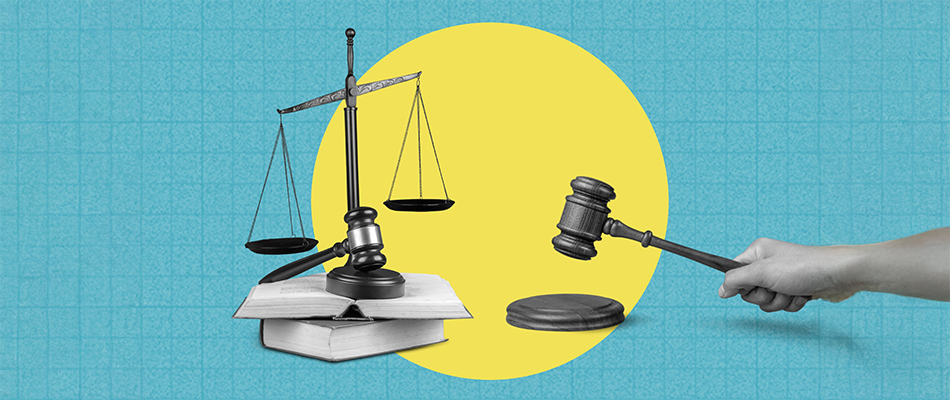Studying an LLB is the first step for anyone who wants to pursue a career in law. The Bachelor of Laws degree is recognised as the foundation for legal practice in the country, and it is also valued in business, government, and non-profit sectors. Many learners are, however, unsure about the exact requirements, duration, career options, and steps involved in becoming a practising lawyer. Choosing where and how to study can also feel overwhelming, especially with several institutions offering different study routes.
In this article, we will explore everything you need to know about pursuing an LLB in South Africa and how it can shape your future.
Table of Contents
- What is an LLB in South Africa?
- Duration and Study Options
- Admission Requirements for an LLB in South Africa
- Core Subjects and Curriculum Overview
- Career Opportunities with an LLB in South Africa
- Steps to Becoming a Practising Lawyer in South Africa
- Costs of Studying an LLB in South Africa
- Top Universities Offering LLB in South Africa
- Why Consider Law as a Career in South Africa?
- Conclusion
- LLB in South Africa – FAQ
What is an LLB in South Africa?
A Bachelor of Laws (LLB)is a professional undergraduate law degree that qualifies students to enter the legal profession. It is aligned with the National Qualifications Framework (NQF) at level 8, which means it is a high-level academic programme. This degree equips learners with the knowledge of South African law, international legal principles, and practical skills required for legal reasoning and advocacy.
Unlike other qualifications, an LLB in South Africa is designed specifically to prepare graduates for careers in law. While business, commerce, or humanities degrees may include legal modules, the LLB provides the depth and specialisation required to practise as an attorney or advocate.

Duration and Study Options
The length of an LLB in South Africa depends on your chosen study path. Learners can complete the qualification through different routes depending on whether they already hold a degree or are studying straight from matric.
Here are the common options available:
- Four-year undergraduate LLB: This is the standard programme for students who enter directly after matric. It is a full-time commitment that covers all compulsory legal subjects.
- Five-year combined degree: Some universities allow learners to combine law with another degree, such as a BA or BCom, before completing their LLB modules.
- Part-time or distance learning: Some institutions provide distance learning for students who want to balance studies with work. This route may take longer, often 5 – 6 years.
These options give flexibility, allowing students to tailor their learning journey to their circumstances.
Admission Requirements for an LLB in South Africa
Admission into an LLB depends on academic performance, language ability, and institutional policies. While exact requirements vary, there are general expectations most universities follow.
Here are the typical requirements for entry:
- National Senior Certificate (NSC) with Bachelor’s Pass: You must have a matric with a bachelor’s pass to qualify. A good APS score, often around 26 or higher, is usually needed.
- Strong language marks: Proficiency in English or Afrikaans (depending on the institution) is important, as the law requires excellent communication skills.
- Mathematics or Mathematical Literacy: Not always compulsory, but some institutions prefer learners with these subjects.
- Recognition of Prior Learning (RPL): Mature learners or professionals with relevant legal or business experience may apply through RPL, allowing them to pursue an LLB in South Africa without the usual entry route.
Before applying, always check with the institution directly, as each may set slightly different requirements.
Read more on Know How to Meet the Entrance Requirements to Study Law in South Africa here!
Core Subjects and Curriculum Overview
The curriculum of an LLB in South Africa combines foundational legal subjects with practical training. The aim is to ensure that graduates understand both the theory and practice of law.
Here are some of the main subjects you can expect in:
- Constitutional Law: Focuses on the Constitution of South Africa, human rights, and governance.
- Criminal Law: Covers crimes, criminal responsibility, and the justice system.
- Law of Contract: Explains agreements, obligations, and remedies in commercial and private contracts.
- Property Law: Examines ownership, rights, and land law.
- Family Law: Covers marriage, divorce, children’s rights, and guardianship.
Electives such as International Law, Cyber Law, or Environmental Law allow students to explore specialised fields. By the end of the degree, graduates develop critical thinking, strong analytical skills, and professional ethics.
Read more on Subject Requirements to Study Law in South Africa: High School to LLB Explained here!

Career Opportunities with an LLB in South Africa
Completing an LLB opens multiple career doors, both within the legal profession and beyond. While many students aim to become attorneys or advocates, others use their qualifications in corporate, academic, or public service roles.
Here are some possible career paths:
- Assistant Prosecution Officer: Supports senior prosecutors in preparing cases, gathering evidence, and handling criminal matters.
- Law Professor or Teacher: Lectures in universities or teaches legal studies in colleges and schools.
- Legal Adviser: Provides legal guidance to businesses, NGOs, or government entities on contracts and compliance.
- Legal Journalist: Reports on legal issues, court cases, and justice developments for media platforms.
- Legal Researcher: Conducts legal analysis and supports lawyers, academics, or judges with research.
- Public Prosecutor: Represents the state in criminal cases to ensure justice is served.
The versatility of an LLB in South Africa makes it valuable even for those not pursuing traditional legal practice.
Explore LLB Career Opportunities in South Africa: Choosing the Right Path for You here!
Steps to Becoming a Practising Lawyer in South Africa
Studying an LLB is only the first step towards becoming a lawyer. Graduates must follow additional professional training before being admitted to the legal profession. The pathway usually includes the following:
- Articles of Clerkship: Working under a practising attorney for two years to gain practical experience.
- Pupillage: For advocates, this is one year of training under a mentor at the Bar.
- Practical Legal Training (PLT): A six-month programme offered by Law Societies that can reduce articles to one year.
- Board Exams: Candidates must pass the Legal Practice Council exams covering ethics, practice, and court procedures.
- Admission: Once exams and training are complete, graduates can apply to be admitted as attorneys or advocates
This structured process ensures that law graduates not only know the law but can also apply it responsibly.
Costs of Studying an LLB in South Africa
The cost of pursuing an LLB depends on the institution, whether you study full-time, part-time, or through distance learning, as well as the additional expenses that come with the programme. Public universities are usually more affordable, while private providers may charge higher tuition fees but often offer more flexibility and support.
Here are some of the common expenses students should keep in mind:
- Tuition Fees: The largest cost, which varies widely across institutions and study modes.
- Study Materials: Law textbooks, casebooks, and online resources form a necessary part of the programme and can add to overall costs.
- Examination and Registration Fees: Additional charges may apply for institutional exams, professional registration, or practical training requirements.
- Additional Costs: Students should also budget for travel, accommodation (if studying away from home), and costs linked to practical legal training after completing the degree.
Many universities and institutions provide financial aid, scholarships, or bursary options to assist learners, helping to make an LLB in SA more accessible.
Top Universities Offering LLB in South Africa
Several universities across the country are well-known for their law faculties. Each has its strengths and areas of focus. Here are some of the most recognised institutions:
- Regenesys Law School: Regenesys offers a Bachelor of Laws (LLB) programme designed to prepare students for the legal profession while integrating business and management insights. The school is career-focused, providing practical skills alongside academic knowledge, making it ideal for learners interested in both law and the corporate sectors.
- University of Cape Town (UCT): UCT’s Faculty of Law is one of the oldest and most prestigious in Africa. It is highly regarded for constitutional law, human rights, and its strong international partnerships.
- University of the Witwatersrand (Wits): Wits offers a comprehensive law programme that emphasises research, critical thinking, and social justice. Its Faculty of Law is known for producing graduates who excel in advocacy and public interest law.
- University of Pretoria (UP): UP’s Faculty of Law is internationally recognised, especially for its focus on constitutional, human rights, and international law. The Centre for Human Rights at UP is a leading hub for research and advocacy.
- Stellenbosch University: Stellenbosch is well-regarded for its academic excellence and research output, particularly in private and commercial law. It has a strong reputation for producing graduates who succeed in corporate and legal practice.
Read more on Where Can I Study for LLB in South Africa: Admission, Study Options and Careers here!
Why Consider Law as a Career in South Africa?
Choosing to study an LLB in SA is not only about job prospects but about playing an active role in shaping society. Lawyers help protect rights, guide business decisions and uphold the rule of law. Demand is growing in areas such as corporate compliance, financial regulation and international law, creating diverse opportunities in both the public and private sectors. For people who value leadership, ethical decision-making and civic impact, law is a rewarding and adaptable career.
Here are a few clear reasons to consider it:
- Impact and public service: Lawyers are central to protecting citizens’ rights and ensuring fair governance, whether in courts, government or civil society.
- Diverse career pathways: An LLB in South Africa opens paths into litigation, advisory work, public prosecution, academia, policy, and corporate roles.
- Professional development: Legal training builds analytical, research and communication skills that are highly transferable to leadership roles across industries.
Know Why Study Law in South Africa: The Role of Legal Education in Shaping Society here!

Conclusion
An LLB in South Africa is the essential qualification for anyone aiming to practise law, but it also opens doors to many other career opportunities. From admission requirements and study options to career pathways and challenges, this degree is a demanding yet rewarding journey. While the qualification requires dedication, its value lies in the respect and versatility it offers in both legal and non-legal professions.
For learners seeking career growth in business, management, or corporate governance alongside legal knowledge, Regenesys Education provides practical and industry-relevant programmes such as the MBA. These qualifications complement the LLB by equipping graduates with leadership and business expertise.
LLB in South Africa – FAQ
How long does it take to complete an LLB in South Africa?
It usually takes 4 years for an undergraduate degree or 2 years for postgraduate study if you already hold another bachelor’s degree.
Can I study an LLB part-time in South Africa?
Yes, many institutions like UNISA offer part-time and distance learning options, though they may take longer to complete.
What careers can I pursue with an LLB in SA besides being a lawyer?
You can work as a corporate legal advisor, policy analyst, compliance officer, or in NGOs and international organisations.
What are the costs of studying an LLB in South Africa?
The costs of studying an LLB in SA vary depending on the university, study mode, and additional expenses such as textbooks, registration, and examination fees
Do I need maths to study an LLB?
Mathematics is not compulsory at most universities, but strong language and reasoning skills are essential.
Is an LLB in SA recognised internationally?
Yes, while the LLB is tailored to South African law, many graduates pursue further studies or practise internationally, subject to local requirements.







